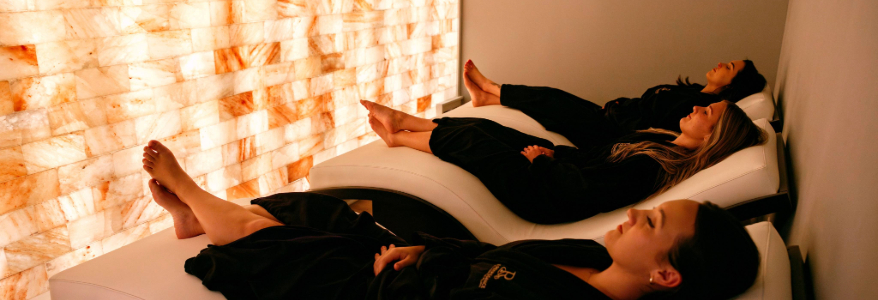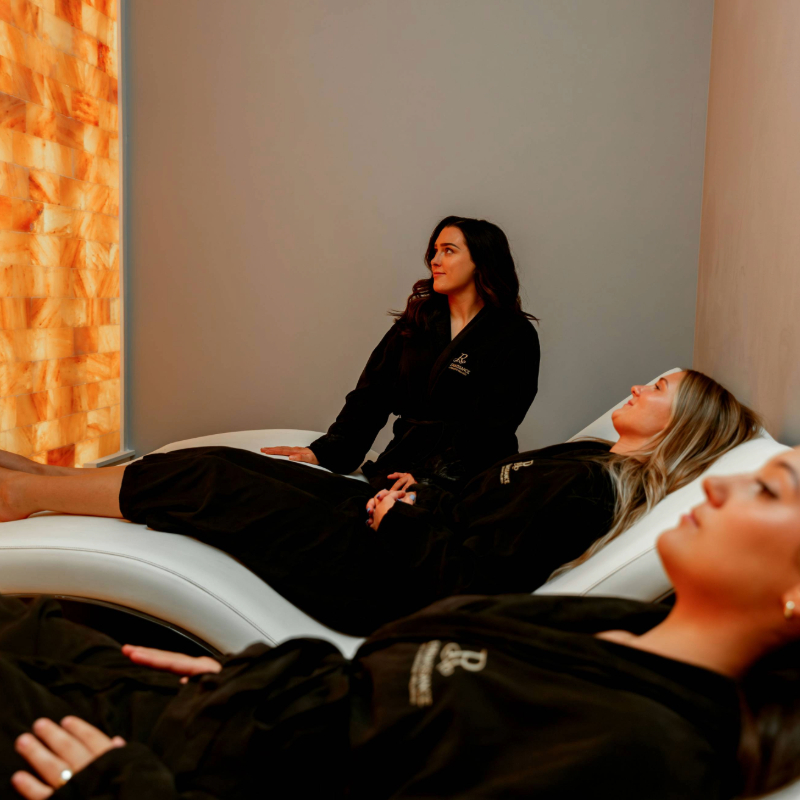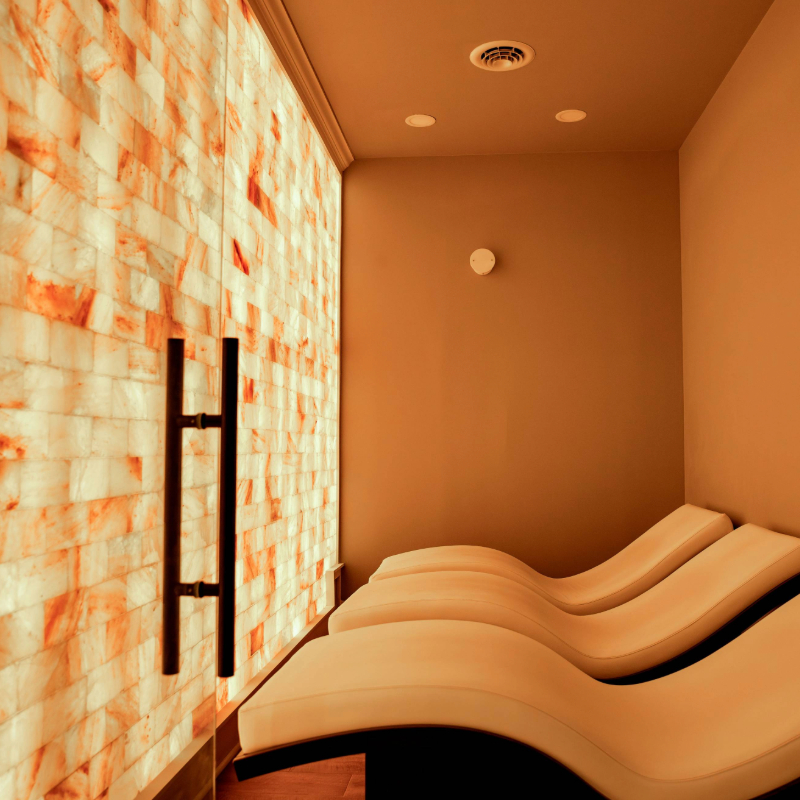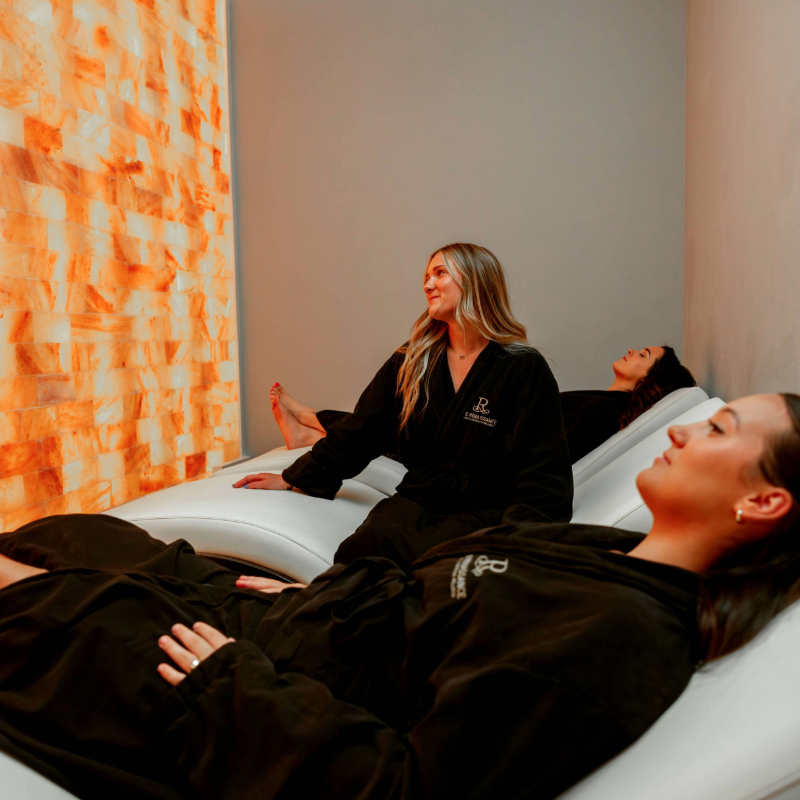Halo Salt Room

Halo Salt Therapy Room (exclusively available at the Skateway location)
Halotherapy (dry salt therapy) is a natural, drug-free, alternative treatment that may help to improve respiratory issues and skin conditions.
The key process involves a halogenerator crushing and grinding 99.99% Pure Grade Sodium Chloride (salt) into very tiny microparticles. The halogenerator, or halotherapy machine, then disperses these dry aerosol microparticles of salt into the salt therapy room, salt cave, halotherapy sauna, or SALT Booth® during a typical session.
As an individual undergoes a salt therapy session, they inhale the microparticles. The particles penetrate deep into the lungs, bronchi, bronchioles, and alveoli to address respiratory concerns.
At the same time, the non-inhaled salt particles are absorbed by the body to combat skin conditions. Salt therapy can offer both respiratory (lungs and breathing) and cutaneous (skin-related) benefits. Additionally, the relaxing, calm environment offered by salt room therapy can help with stress reduction.


What to Expect:
Salt-Covered Surfaces: The walls, floor, and even the ceiling of the salt room are covered with layers of salt, creating a salt-rich environment. The salt used is high-quality, pharmaceutical-grade salt.
Halogenerator: A halogenerator is a key component of the salt room. It grinds salt into fine particles and releases them into the air in a controlled manner. The concentration of salt particles in the air is carefully maintained to ensure therapeutic effectiveness.
Comfortable Seating: Our salt room is equipped with comfortable seating to allow guests to relax during their session.
Relaxation and Atmosphere: The environment in a Halo Therapy Salt Room is designed to promote relaxation. Soft lighting, soothing music, and a tranquil ambiance contribute to a calm and stress-reducing experience.
Session Duration: Halo therapy sessions last 30 minutes. During this time, individuals can relax, read, meditate, or simply breathe in the salt-rich air.
Health Benefits:
Respiratory Health: Some people turn to salt rooms for relief from respiratory conditions such as asthma, bronchitis, allergies, or sinusitis. Inhaling salt particles may help reduce inflammation and improve mucus clearance.
Skin Conditions: Halo therapy is believed to have benefits for certain skin conditions like psoriasis and eczema due to the potential anti-inflammatory and antimicrobial properties of salt.
Stress Reduction: The calming environment of a salt room can promote relaxation and reduce stress and anxiety.
Improved Well-Being: People often report feeling refreshed and rejuvenated after a session in a salt room.
General Wellness: Some individuals use salt rooms as part of their wellness routine to maintain overall health and well-being.
It’s important to note that while many people find salt therapy enjoyable and potentially beneficial, scientific research on its efficacy for specific health conditions is still evolving. If you’re considering halo therapy, it’s advisable to consult with a healthcare professional, especially if you have respiratory or medical concerns





